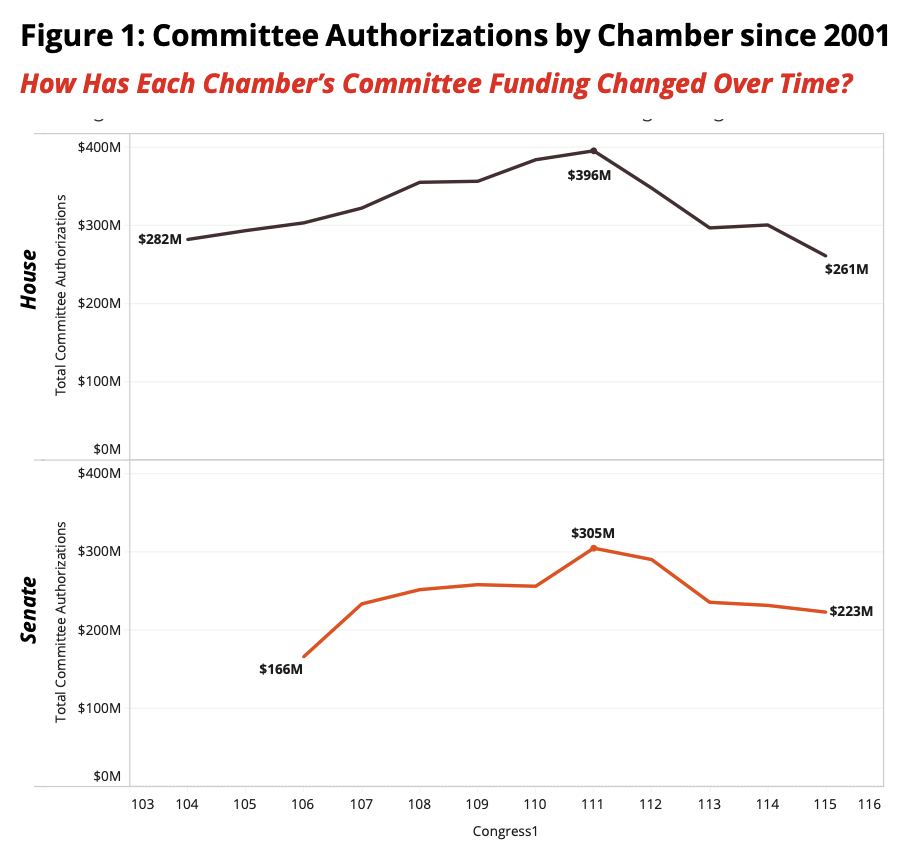Congress Can’t Keep Up

From R Street Institute’s Whose on the Hill
The R Street Institute’s Casey Burgat examined that connection between foreign policy agencies and the ability of congressional committees to properly oversee their activities. He found that the ratio of resources dedicated to the State Department and Department of Homeland Security versus the four congressional committee charged with overseeing them has increased from 1,000 to 1 to 4,300 to 1. In other words, congressional resources have remained stagnant while the agencies size have quadrupled in comparison. Burgat concludes that this leads to “a reduced capacity for fruitful oversight.”
Burgat also examined seniority among foreign policy committee staff and found the longest average tenure is less than seven years. Contextualizing this time frame, he notes that “the average committee staffer responsible for issues relating to the wars in Iraq and Afghanistan, as well as the military operations in Libya, Syria and beyond, was not on the committee more than five years ago and, thus, is over a decade removed from working on the committee when the most recent AUMF was approved by Congress.”









